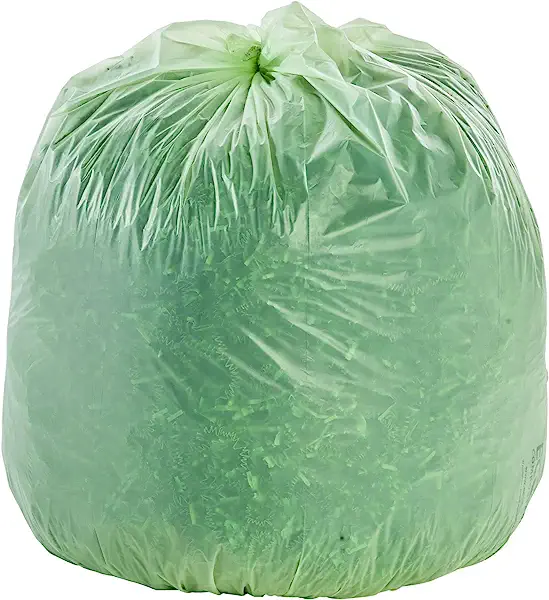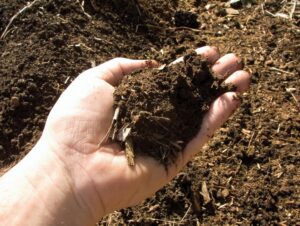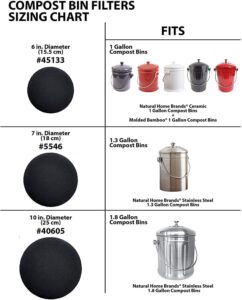Let’s talk about heroes. Not the cape-wearing, shield-wielding variety, but everyday heroes that quietly make a difference. Like trash bags. More specifically, compostable trash bags. Before you raise an eyebrow, consider this: every year, we churn out billions of plastic bags worldwide. They clog our oceans, fill our landfills, and even hang around in trees, pretending to be leaves. But what if we could replace them with an alternative that’s as kind to the Earth as it is effective at holding trash? Enter, the compostable trash bag – the unsung hero of waste management.
The Growing Problem of Plastic Waste
Why Should You Care About Plastic Trash Bags?
Picture this. Your home is spotless, but your trash bag is bursting at the seams, groaning under the weight of food scraps, soda cans, and yesterday’s news. Out it goes, into the bin and out of sight. But while it might be out of your hair, it’s not gone. It’s off on a journey to join its plastic comrades in a place not so far away: the local landfill.
The Scale of the Problem
With enough plastic trash bags used annually to circle the Earth 300 times over, we’re not just talking a hill of plastic waste; we’re talking mountain ranges. And these aren’t your ordinary mountains that wear away over time due to wind and rain. No, these mountains are here to stay.
Introducing: Compostable Trash Bags
What Are Compostable Trash Bags?
Now, imagine if you could use a trash bag that does disappear when you’re done with it. No, not some kind of David Copperfield disappearing act, but genuinely breaks down into nothing harmful. That’s exactly what compostable trash bags do.
The Science Behind Compostable Bags
Compostable bags are truly a marvel of modern science. Their design is predicated on the principles of composting, a natural process that turns organic material into a nutrient-rich soil conditioner. Here’s how the magic happens.
Compostable bags are primarily made from plant-based materials like corn starch, PLA (polylactic acid) and PBAT (polybutyrate adipate terephthalate). This might sound like a chemistry class gone wild, but stay with us. Cornstarch is a natural polymer, which is transformed into a plastic-like material known as PLA. PBAT, on the other hand, is a synthetic polymer that provides the bag with flexibility and strength. So, you get the environmental benefits of a compostable bag with the performance of a traditional plastic bag.
Once you’re done using them, compostable bags can be placed into a compost pile or bin. Here, in the presence of moisture, oxygen and heat, microorganisms get to work breaking down the material. What’s left at the end of this process is water, carbon dioxide, and biomass. This biomass is a nutrient-rich substance that enhances soil health and fertility.
The rate at which this happens varies based on conditions like temperature, humidity, and the presence of the right microorganisms. But in a controlled composting environment, a compostable bag can decompose in as little as 10 weeks. That’s a blink of an eye compared to the hundreds of years a conventional plastic bag takes to degrade!
The above details are supported by numerous scientific studies and references. For example, according to the article “Biodegradable and compostable alternatives to conventional plastics” published in Philosophical Transactions of the Royal Society B, compostable plastics made from polylactic acid (PLA) and other plant-based materials can successfully biodegrade in industrial composting facilities.
It’s worth noting, however, that these bags should ideally be composted in industrial facilities designed to handle compostable plastics. Home composting may not provide the necessary conditions for these bags to fully decompose.
For more details, you can refer to this link.
This science stuff might not be as thrilling as a superhero movie, but we think it’s pretty cool. After all, compostable bags might not be able to fly or shoot lasers from their eyes, but they’re fighting the good fight against plastic waste, one bag at a time!
Advantages of Using Compostable Trash Bags
Environmentally Friendly
We’re not claiming that switching to compostable bags will put you on the same level as Captain Planet, but hey, it’s a start! By reducing the amount of plastic waste, you’re taking a step towards a cleaner, greener Earth.
Convenient and Easy to Use
Whoever said doing your bit for the environment had to be hard? With compostable trash bags, it’s as easy as replacing the bags you currently use. No fuss, no muss.
Multifunctional
Not just for kitchen scraps, compostable bags can be used for anything from yard waste to pet waste. They’re like the Swiss army knife of trash bags!
Countries Leading The Way With Compostable Trash Bags
Italy
In a bold move, Italy waved arrivederci to single-use plastic bags and introduced compostable alternatives nationwide. Today, Italian citizens are gleefully filling their compostable bags, knowing they’re contributing to a cleaner, greener future.
France
France took the eco-friendly baton and sprinted with it, banning all plastic plates, cups, and cutlery, in addition to plastic bags. Now, you can enjoy your baguette, fromage, and vin on compostable tableware. How’s that for chic sustainability?
San Francisco, United States
Meanwhile, across the pond, San Francisco is leading the charge in the United States. With a city-wide composting program and a ban on plastic bags, the City by the Bay is proving that where there’s a will, there’s a way.
Denmark
Denmark has been an eco-warrior for years, imposing levies on plastic bags way back in 1994. Today, Danes use fewer plastic bags than any other country, a testament to their commitment to sustainability.
Rwanda
In Rwanda, you’ll get more than a disapproving look for using a plastic bag – you’ll get fined or even imprisoned! This East African nation takes environmental protection seriously, and it shows.
Innovative Advances in Compostable Trash Bags
Today’s compostable bags aren’t your grandmother’s brown paper bags. They’re innovative, high-tech, and designed to break down rapidly under the right conditions. Companies like Matter-Bi and BioBag are leading the way with bags that decompose in as little as 10 days!
Future Innovations
While the technology is impressive, we’re just scratching the surface. The future may hold compostable bags that break down even faster, or perhaps bags that can decompose in the ocean. The possibilities are endless, and we can’t wait to see what’s next.
Things to Consider When Switching to Compostable Trash Bags
Compostability vs Biodegradability
When shopping for eco-friendly trash bags, remember not all “green” bags are created equal. While all compostable bags are biodegradable, not all biodegradable bags are compostable. And as we’ve learned, compostable is the gold standard in the world of waste disposal.
Quality and Durability
Sure, you’re saving the planet, but you don’t want to deal with a bag that rips and spills trash all over your kitchen floor. That’s why you should always look for bags that are renowned for their strength and durability.
Size and Capacity
Remember, you’re buying trash bags, not jeans. One size does not fit all. Always consider your trash output and the size of your bin when choosing bags.
Our Top Picks
Reli. Biodegradable 40-45 Gallon Trash Bags
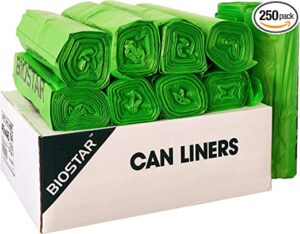
Presenting the Oxo Biodegradable Trash Bags, a game-changer in waste management. This pack comes with a bountiful bulk value of 250 count, each one designed to manage a substantial 40-45 Gallon capacity. These large bags, measuring 40″x46″, possess a robust toughness of 14 microns, offering a premium value that balances size, strength, and sustainability.
These bags aren’t just larger-than-life, they’re also eco-friendly. Certified under ASTM D6954 U.S. Standard, these bags are designed to degrade in the presence of moisture, oxygen, and soil. This is eco-certification at its finest, a commitment to environmental care that doesn’t compromise on quality.
But that’s not all. These bags are also custom-fit for convenience, accommodating a wide range of daily needs. Whether your trash can has a 31, 39, 40, or 45 Gallon capacity, these compactor-friendly bags are designed to fit like a glove.
As a product of Reli., these Oxo Biodegradable Trash Bags stand tall against the company’s commitment to delivering quality, environmentally-friendly solutions. You’re not just relying on a trash bag, you’re relying on a promise – a promise to facilitate a greener, cleaner, and more sustainable future, one bag at a time. Check out Amazon’s prices here.
UNNI 100% Compostable Bags
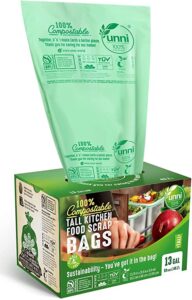
Introducing UNNI Compostable Bags. These bags are not only impressive in size, boasting a 13 Gallon / 49.2 Liter capacity and measuring 23.75 in x 31.49 in x 0.9 Mils, but they also come in a handy roll of 50, ready to manage your waste disposal needs.
What sets these bags apart is their notable eco-credentials. They hold prestigious certifications both in the U.S. and Europe. Recognized by the Biodegradable Products Institute (BPI) under the U.S. standard ASTM D6400, and holding the OK Compost Home certification under the European standard EN 13432, endorsed by Vinçotte and Tüv Austria, these bags guarantee 100% biodegradability in home composting facilities.
But the eco-friendly features don’t stop there. These UNNI Compostable Bags hold the title for the highest biobased content. Made purely from plant starches and containing absolutely no polyethylene, they offer a nontoxic, easy-to-use, and most importantly, a kind-to-environment solution to waste disposal.
To get the most out of your UNNI Compostable Bags, store them in a cool, dry place and avoid exposure to excessive heat. Aim to use them within one year of purchase, and only buy what you’ll use in nine months.
Green Earth Compostable Tall Kitchen Food Scrap Waste Bags
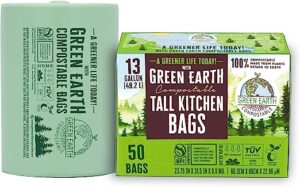
Experience the Green Earth Compostable Bags, an eco-friendly powerhouse designed for both home and commercial use. With a generous 13 Gallon / 50 Liter capacity and convenient dimensions of 23.75 in x 29.375 in x 0.9 Mils, these bags are designed to meet your waste disposal needs while fitting most tall bins seamlessly.
But what truly sets Green Earth Compostable Bags apart is their guaranteed compostability. They completely decompose in both home and commercial composting facilities, leaving only nutrient-rich humus, water, and CO2 behind. This isn’t just waste disposal; this is contributing to the earth’s nutrient cycle.
Caring for your Green Earth Compostable Bags is simple. Use them within one year of purchase and store in a cool, dry place. Easy, isn’t it?
We also understand the importance of GMO-free products in the current ecological context. That’s why Green Earth Compostable goes the extra mile to source GMO-free crops for all our compostable products.
The commitment to environmentally friendly practices doesn’t end there. Green Earth Compostable Bags proudly meet the most stringent standards for home and municipal/commercial composting. Not only are they certified under the BPI’s rigorous ASTM D6400 specification in the USA, but they also hold the OK Compost Home certification, a European standard guaranteeing 100% compostability in industrial/municipal and home/backyard composting facilities.
By choosing Green Earth Compostable Bags, you’re not just choosing a waste disposal product; you’re making a conscious decision to contribute to a greener, healthier planet. Together, we can make a world of difference.
Making the Switch to Compostable Trash Bags
Yes, it’s a bit more effort, and maybe a bit more expense. But when the reward is a cleaner, greener planet, it’s a small price to pay.
Conclusion
As we stand on the precipice of ecological disaster, each decision we make, each action we take, has the power to make a difference. Compostable trash bags are more than just a handy tool to carry our waste; they’re a symbol of our commitment to sustainability, our desire to make a positive impact, and our hope for a greener future. So, the next time you toss something in the trash, consider this: could you be throwing away an opportunity to be an everyday hero? Could changing your trash bag change the world? If you’re using compostable trash bags, the answer might just be a resounding yes.
FAQs
Do compostable trash bags decompose in a landfill? They do, but not as efficiently as they would in a compost heap. But hey, they’re still a better choice than plastic.
Can I use compostable trash bags for my home compost? You bet! They’re the perfect fit for home composting.
Are compostable trash bags more expensive than regular plastic bags? They can be, but isn’t a clean, healthy planet worth the extra pennies?
How long do compostable trash bags take to decompose? It varies, but usually, they’re gone within a few months. Compare that to the 500 years it takes for a plastic bag!
Is there a specific way to dispose of compostable trash bags? Composting is best, but they can also be disposed of in your regular trash. Just remember to reduce, reuse, and recycle where possible!

